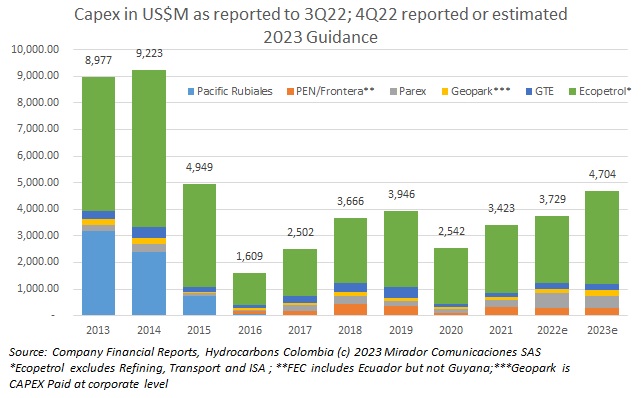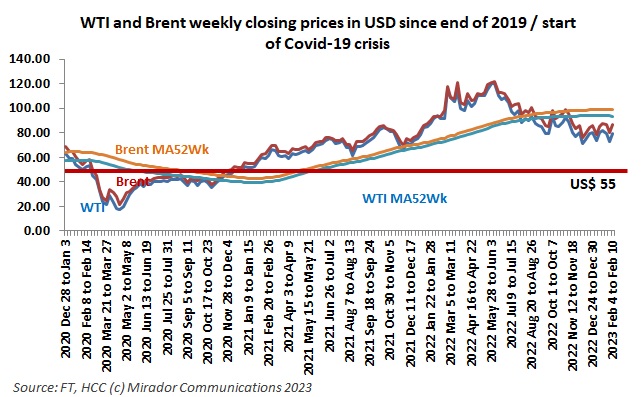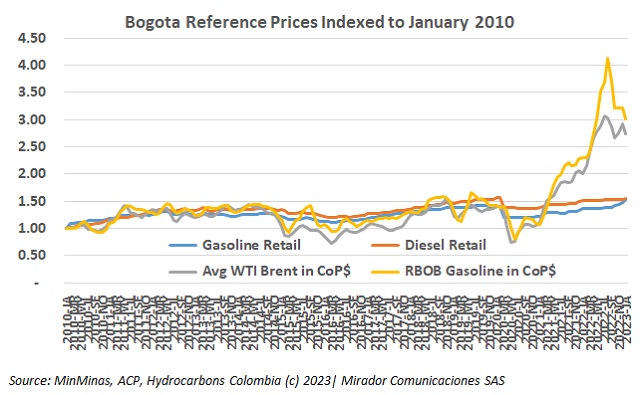
The publicly-traded, Colombia-focused E&Ps have all published their CAPEX guidance and expectations for Brent for the coming year. Normally, we see that price is the biggest determinant of CAPEX but this year might be different with a left-leaning, activist government. Can we see any evidence that policy changes and / or the new tax laws have had an influence?
Colombia’s National Federation of Biofuels (Fedebiocombustibles) has announced the sector’s sales for 2022.
The government has a plan to gradually increase the price of gasoline and reduce the deficit in the Fuel Price Stabilization Fund (FEPC) over the coming years.
Alejandro Martínez Villegas, President of the Colombian Propane Association (Gasnova), warned the government of the threats received from the ELN and their negative effects.

Despite the legitimate concerns about exploration and reserves, oil prices drive performance in the immediate term, both for companies and the national budget. The ups and downs of trader sentiment about global supply pushes prices back and forth.
Juan Carlos Vélez Uribe announced his resignation as president of the National Federation of Fuel and Energy Distributors (Fendipetróleo).
Sociedad Portuaria El Cayao (SPEC LNG) initiated a process to analyze a possible expansion of the regasification terminal.

The Ministry of Mines and Energy (MinEnergia) announced fuel prices for February 2023. Here are the details.
The Colombian Oil and Gas Association (ACP) talked about investment expectations for the fuels sector in 2023.

The Colombian government started to increase gasoline prices in October 2022. Experts talked about the possible behavior of this metric for this year.